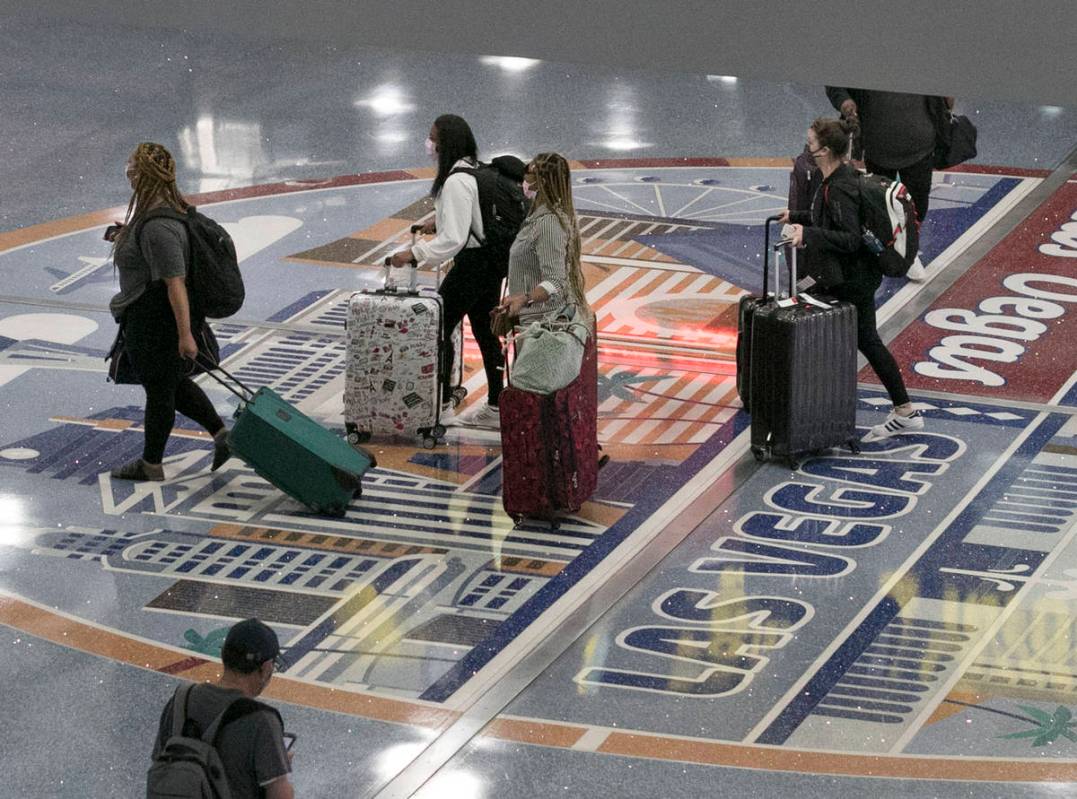Survey shows big reluctance to travel with coronavirus ablaze

Would-be travelers are becoming more pessimistic in their outlook about their safety when they travel.
A report issued by San Francisco-based Destination Analysts that surveys prospective visitors’ attitudes toward travel found the economic toll on tourism resulting from the coronavirus outbreak is not pretty.
To the question, “In the next month, how (if at all) do you expect the severity of the coronavirus situation in the United States to change?” 47.7 percent of the 1,200 people surveyed said they expected conditions to get worse. A week earlier, the number was 34.7 percent.
The Nevada Commission on Tourism met Tuesday to review the survey results, which are nationwide and not Nevada-specific.
The percentage expecting things to get better declined from 33.6 percent to 21.5 percent.
As for fall travel, 58.7 percent of those surveyed believe the virus situation won’t be resolved before fall arrives, while 20.6 percent believe that it will.
The survey says 68.2 percent — up from 67.3 percent a week ago — are personally concerned about contracting the virus.
Destination Analysts also asked how safe people feel about participating in routine travel activities. People surveyed are most comfortable with non-team outdoor recreation activities like hiking and biking. On those, 18.2 percent consider those activities “somewhat unsafe” or “very unsafe.”
Other activities and what percentage feel they’re unsafe: going shopping, 28.4 percent; dining in a restaurant, 45.5 percent; visiting a museum, an aquarium or other indoor attraction, 53 percent; using Uber, Lyft or a taxi, 57.4 percent; traveling on a commercial airliner, 61.1 percent; going to a casino, 66.9 percent; attending a musical performance, 67.9 percent; attending a conference or convention, 68.7 percent; attending a stadium sporting event, 70.6 percent; and traveling by bus, 73.3 percent.
The vacation activity most are worried about: going on a cruise, 77.1 percent, with most of them (58.7 percent) categorizing them as “very unsafe.”
The survey also tracks whether visitors would travel once the pandemic subsides or until a vaccine is widely distributed. Of those surveyed, 47.8 percent say they won’t travel again until the coronavirus situation blows over, as opposed to 30.1 percent who would.
And, of those surveyed, 35.7 percent say they won’t travel until a vaccine is distributed, with 36.2 percent saying they would.
The concern about tourism mirrors worries being experienced by the Las Vegas Convention and Visitors Authority. LVCVA President and CEO Steve Hill is a member of the state commission.
“Our reopening was actually stronger than we expected,” said Hill, who said the LVCVA is expecting just 60 percent of the room-tax revenue it originally anticipated.
Hill noted that not only is room capacity down in Las Vegas, but so is the average daily room rate. He said just 105,000 of Southern Nevada’s inventory of about 150,000 rooms are currently available, and those are running at about 55 percent to 60 percent occupancy. Usually, they’re at around 90 percent. Midweek occupancy is about 25 percent to 30 percent.
Using data derived from some 3,000 surveys the LVCVA gathers, Hill said the organization would focus on marketing to customers who are most likely to want to make a trip to Las Vegas instead of trying to drum up new customers.
In survey questions involving the most-talked-about coronavirus hotspots, Las Vegas ranked ninth among destinations discussed with 7.8 percent saying they had heard those discussions. Highest on that list: New York (80 percent), followed by Florida and California. Ten destinations ranked below Las Vegas, including New Orleans, Arizona and Hawaii.
The survey results were received by the commission as part of a subscription service that costs the state $3,800 a month.
Contact Richard N. Velotta at rvelotta@reviewjournal.com or 702-477-3893. Follow @RickVelotta on Twitter.